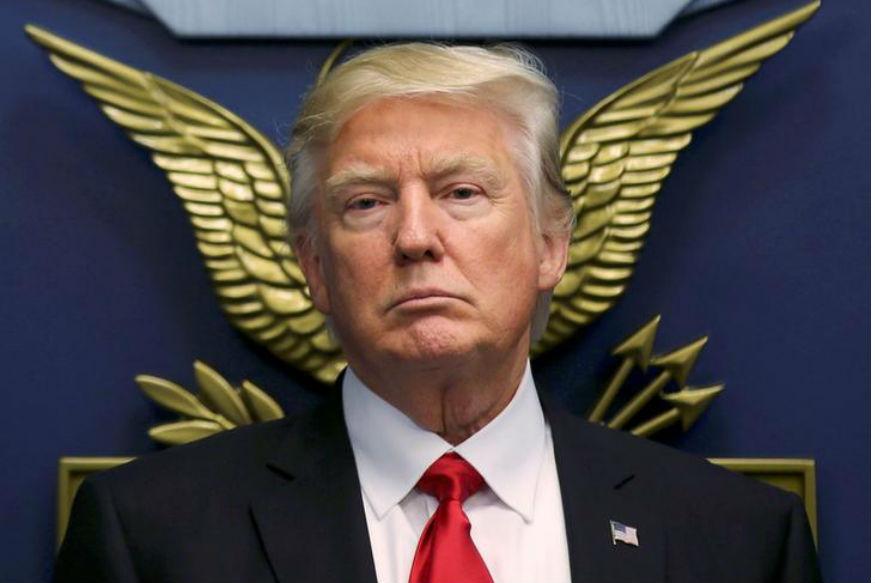In view of their energy demand, the US which has imposed the second wave of sanctions on Iran, has exempted 8 countries, including India, Japan, South Korea and China from any punitive trade actions for six months. Shut off from dollar-dominated exchange, Iran will sell its oil to these countries in their local currencies, thereby, pushing Tehran to fend off its humanitarian needs only. These waivers will end in May 2019. After this, all eight countries will have to bring down their oil import from Iran to zero level.
Objective of such sanctions is to cripple Iran’s missile and nuclear programme and hit its economy hard so that it may lose its political, economic, diplomatic and strategic influence in the Middle-East region. But analysts say Iran has experience of facing American sanctions deftly. The Middle-East country, they say, was already under sanctions prior to the 2015 nuclear deal that was signed between Tehran and all five members of the United Nations Security Council and Germany in Lausanne in Switzerland.
China, the top buyer of Iranian oil, has already declared that it will continue with its business with Iran; Russia has also said that it will strengthen its bilateral economic engagement with the Middle-East country, while India, the second largest Iranian oil buyer after China, imports more than 17 per cent of crude oil from Iran.
India has received waiver from the US on its Iran-based Chabahar port project also. Though involved in the deep sea port project since 2003, India is expected to complete it by 2019. Once it is operationalized, Chabahar port will help connect India with Afghanistan and Central Asia through Iran. With this also, Afghanistan which is a land locked nation will be able to bypass Pakistan in its trade with India.
Also read: “Sanctions are coming”: Trump goes all Game Of Thrones, warns Iran
In December 2017, the first phase of the Chabahar port was inaugurated by Iranian President Hassan Rouhani, second phase of the construction is currently on. Under the agreement signed between India and Iran, the former will operate two berths in Chabahar port phase-I with capital investment of $85.21 million and annual revenue expenditure of $22.95 million on a 10-year lease.
Besides, Iran is going to be a key route of India-Iran-Russia-led International North South Transport Corridor, a sea and rail-based transport project, conceived in 2003, is on the verge of operationalization. The ambitious transport project will connect India with Middle-East, Central Asia, Russia and Europe. Upon operationalization, Iran will find it easy to navigate through economic sanctions imposed by the Trump administration of America.
Ongoing geo-political situation across the world shows that the Trump administration will have to realize that its move to withdraw from the 2015 Iran nuclear deal and impose sanctions on the country will prove futile. A broad hint in this regard has already been given by Europe too as it has set up a mechanism to rescue Iran from the stifling economic sanctions. Under a proposed measure known as a special purpose vehicle (SPV), Europe will help persuade Tehran to stay inside the deal and not break it even at the face of provocations from the US. Major European powers like France, Germany and England which were part of P5+1 that had signed the deal with Iran on the nuclear issue, have already opposed the US’ unilateral decision on Iran. They have in many words and innuendoes have made it clear that the decision to withdraw from the Iranian nuclear deal is based on President Trump’s subjective beliefs and perception and not on facts, logic or larger public interests.
Also read: Iran vows not to talk with US under threats
There is a fear that America’s move to bring Tehran under sanctions’ regime will further escalate oil prices. The US itself is not equipped enough to fill demand and supply gap that cut in Iranian oil supply will cause. Nor is combined strength of Saudi Arabia, Libya, the UAE, Angola and Nigeria—all major Organisation of Petroleum Exporting Countries (OPEC)–able to match loss caused by cut in supply of oil from Iran and Venezuela, the Latin American nation which is mired in protected economic crisis and continues to lose oil production.
Ongoing trade war between China and the US is hitting below the belt already stressed economy of the world. In this situation, what disruptions American sanctions on Iran will cause in the oil market, especially 180-day after exemptions granted to eight countries—India, China, Japan, South Korea, Italy, Greece, Taiwan and Turkey, expires. Analysts predict more economic downturn in 2019. They say rise in oil prices could slow down demand in the market. American leadership seems to be unflustered with international concern.
However, after the US mid-term polls in which Republicans lost the House of Representatives but won only the Senate, President Trump may not be able to shove his agenda on the lawmakers’ table at will. Democrats powered by their dominance in the House have already hinted that they will question the Trump administration’s merit to withdraw from the Barack Obama-led administration’s deal with Iran on the nuclear issue. Therefore hint is clear: President Trump and his team members may face increased political heat on policy issues that have, in the past 18 months, brought more brickbats than bouquet for America.
Disclaimer: The opinions expressed in this article are the personal opinions of the author. The facts and opinions appearing in the article do not reflect the views of NEWSD and NEWSD does not assume any responsibility or liability for the same.


















